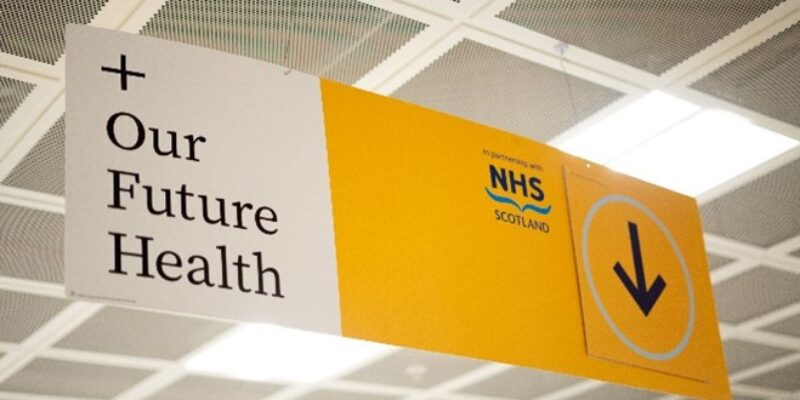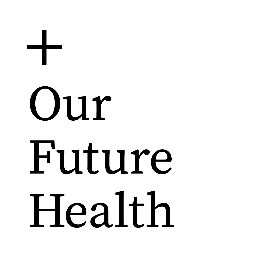
Today, millions of people spend many years of their life in poor health, suffering from common diseases like cancer, dementia and heart disease. As an NHS doctor, I know that too often, these diseases are only detected and treated when patients start to show symptoms and signs.
Our Future Health aims to change this and ensure everyone can live longer, healthier lives. It’s the UK’s largest ever health research programme, in partnership with the NHS. We will gather health information from 5 million volunteers to create a detailed picture of the nation’s health. Volunteers complete a questionnaire, provide a blood sample at one of our clinics and allow us to link to their NHS health records. We securely store this data, which researchers will apply to access. By looking at all these different sources of health information, researchers will be able to make new discoveries about diseases and develop innovative approaches to prevention, detection and treatment.
Anyone aged over 18 living in the UK can take part, including people who live with existing health conditions or a disability. What’s really important to us, and essential for the programme’s success, is that these volunteers accurately represent people from different backgrounds across the UK, so that any discoveries made through Our Future Health can benefit everyone. If all our volunteers are from the same geographic region, the same ethnic or socio-economic background and the same age bracket, research using our resource will only benefit that type of person.
In the past, some groups have not been well represented in health research programmes like ours. This includes people from Black, Asian and minority ethnic communities, as well as people with lower incomes. But these are the groups who often experience worse health outcomes, such as lower life expectancy among the poorest people in the UK, and heart disease being more common among the South Asian community. If we don’t have people from these groups taking part in Our Future Health, we won’t know why these health inequalities occur – or how we can reduce them.
We’ve always incorporated diversity efforts into our recruitment of volunteers. In Scotland, our clinics (where volunteers donate their blood samples) are in selected Boots stores. This means it’s convenient for people to take part in Our Future Health during their regular routine, and we’re hoping this encourages people who have never taken part in something like this before. We’ve also introduced a £10 voucher to help cover people’s cost of taking part and ensure nobody is excluded for financial reasons. So far, this has increased participation among lower socio-economic groups, with roughly 10% of our volunteers coming from the poorest bracket of society.
We’re the most ethnically diverse large-scale research programme in the UK, but we still have a way to go to match the population. Around 20% of our volunteers are from a non-British white ethnic minority, which is better representation than other health research programmes. However, this percentage is an aggregate and doesn’t show which ethnic minorities are underrepresented. We know we’ve been less successful at recruiting volunteers from Bangladeshi, Pakistani and Black African backgrounds than we have with people from British Chinese and Indian backgrounds.
In 2025 our focus is shifting even more towards including underrepresented communities. We’re developing a community scheme, which will provide support to community organisations to raise awareness of Our Future Health and our need for a diverse range of volunteers. Additionally, we plan to train community champions, who can pioneer our message within their own communities.
We’re also reaching out to local communities and contacts across different regions, in the hopes they can spread the word to underrepresented groups who perhaps haven’t heard of us or are mistrustful of programmes like ours. In this way, we would really appreciate anything you can do to connect us with underrepresented groups in your community. If you can help or want to learn more about our diversity efforts near you, please get in touch by email.
Together, we can ensure everybody in Scotland is able to live longer, healthier lives.
Dr Raghib Ali is Chief Executive and Chief Medical Officer of Our Future Health and NHS Consultant in Acute Medicine.

